Each edition brings practical wisdom, community highlights, event updates, and a care package of curated links to nurture your curiosity.
We respect your inbox—unsubscribe anytime using the link at the bottom of the email, no hard feelings!
Hey friends,
The air feels thick with ugly questions right now. About the world, about the future, about each other. I may have breathed a few of those ugly questions into the air myself this week.
So, I want to share a story.
In my early twenties, I worked at a local chain store that sold computers. I was pretty good at it—I enjoyed connecting with people about technology and finding what suited them best. But the star salesperson was a guy who really knew how to do Sales—let’s call him Matt.
Matt was friends with the owner of the entire chain—a boss whose name literally meant “hard as stone.” I admired Matt but always struggled to connect with him, and I think he saw me as a bit of a rival.
One day, I went out the back for something and found Matt on the stairs, crying.
He was embarrassed. I asked him what was wrong, and he told me his grandmother had passed away. It had happened a while ago, but the grief had just caught up with him. We talked about his grandma, shared a quiet moment, and then went back inside, where he was his usual self.
After that, we barely spoke. A few weeks later, I found out he’d reported me to the big boss over a misunderstanding with the mail, and I was promptly fired.
I was hurt, confused, and couldn’t understand why someone would act that way.
Years later, I ran into Matt again at a different store. He recognised me right away, greeted me warmly, and apologised for what had happened. He seemed lighter, happier—he had a girlfriend, a dog, and was content with his work. We chatted for a while and even connected over a shared interest in animal rights.
I was still a bit bewildered, but I noticed something in me had shifted.
The question I’d held on repeat had softened slightly, moving from “How could you?” to “Why did you?”
Since then, I’ve learned a lot more about people. I’ve learned the difficult truth that hurt people hurt people, that vulnerability in others can feel intolerable when we’re angry or ashamed of our own.
I’ve learned that people can only meet us to the depth they’ve met themselves.
And I’ve had to unforget, over and over, that all of us are just ordinary people—“they” is “us,” and we are each capable of great and terrible things.
Curiosity and care are essential now, perhaps more than ever. And in two ways:
First, we need to remember that there is always more to understand than what we think we know. Are there more beautiful questions we could ask, beyond the ones we’re used to?
Second, we need to champion curiosity and care in the way we live. It’s not about pointing fingers or deciding who “they” are; it’s about who we are.
If we truly want to help people meet themselves at greater depths, perhaps we’re called to become beautiful answers ourselves, to be a contribution.
We’re heading into a fresh period of great uncertainty. And as Hannah Arendt said, “Where certainty ends, thinking begins.”
Let’s hope we all embrace the opportunity to think well about what we do.
With curiosity and care,
Danu
Into the grokkiverse
The latest publications, events, and offerings from the Grokkist Press, Network, and Academy
From the Grokkist Press
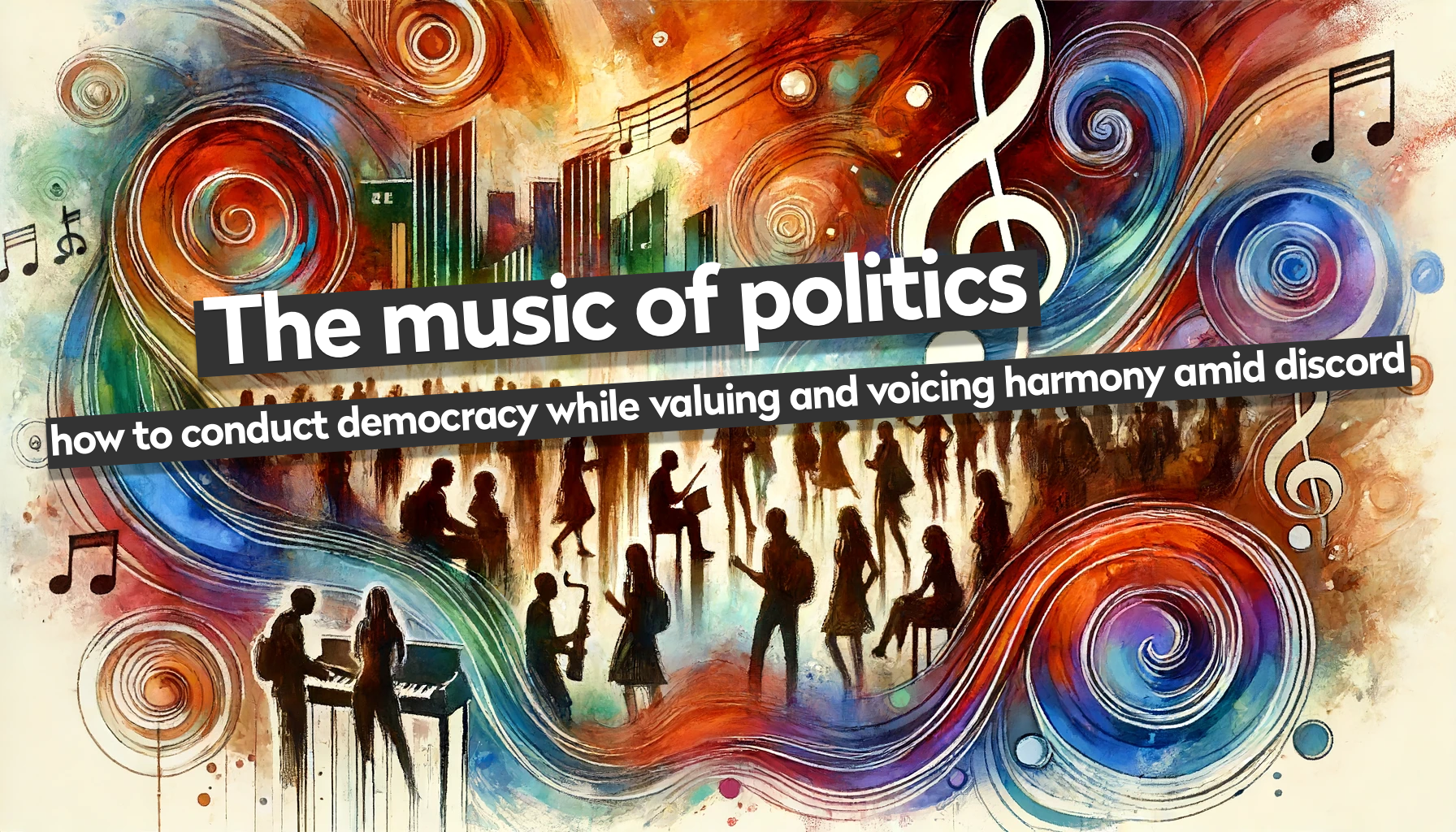
The music of politics
By Danu Poyner (25 min read)
How fresh political arrangements can help us conduct democracy in a way that values and voices harmony amid inevitable discord.
Upcoming Events
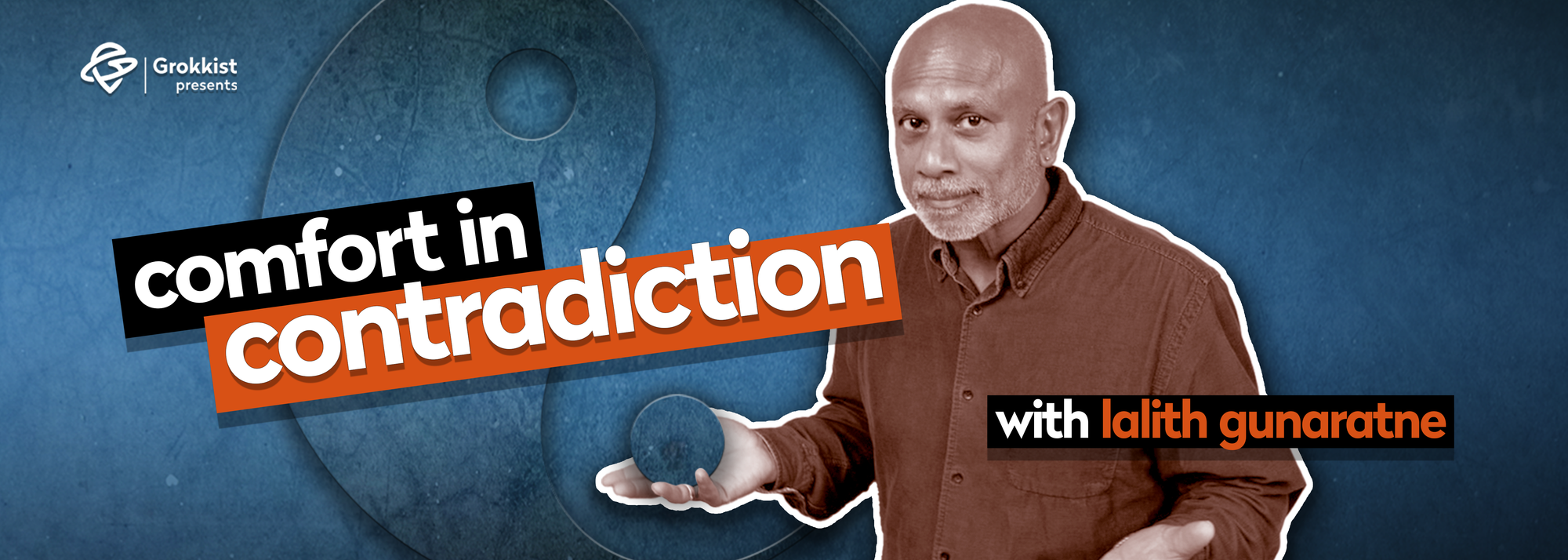
🟢 Comfort in Contradiction: The Art of Non-Dual Thinking in a Polarized World
🗓️ Thur 14 Nov | 7–8.30pm ET (UTC-5) (view in your timezone)
Hosted by Lalith Gunaratne
In a world where “I am right, and YOU are wrong” often drives us apart, we find ourselves trapped in a cycle of separation, conflict, and cancellation. But what if there’s room for both perspectives to hold truth?
Drawing from my Eastern philosophical roots, I’ve come to embrace the idea that something can be “True but not Right” and “Right but not True.” It’s a perspective that invites a pause—a deep breath—to observe rather than react, to see beyond the binary of good or bad, and to recognize the complexities that allow both to coexist.
By blending critical thinking with mindfulness, we’ll co-inquire into the philosophy of non-duality and interconnectedness, discovering how the seeming contradictions of Good and Bad are not opposites, but can be part of a larger, shared spectrum.
Other Upcoming Events
From the Grokkist Academy
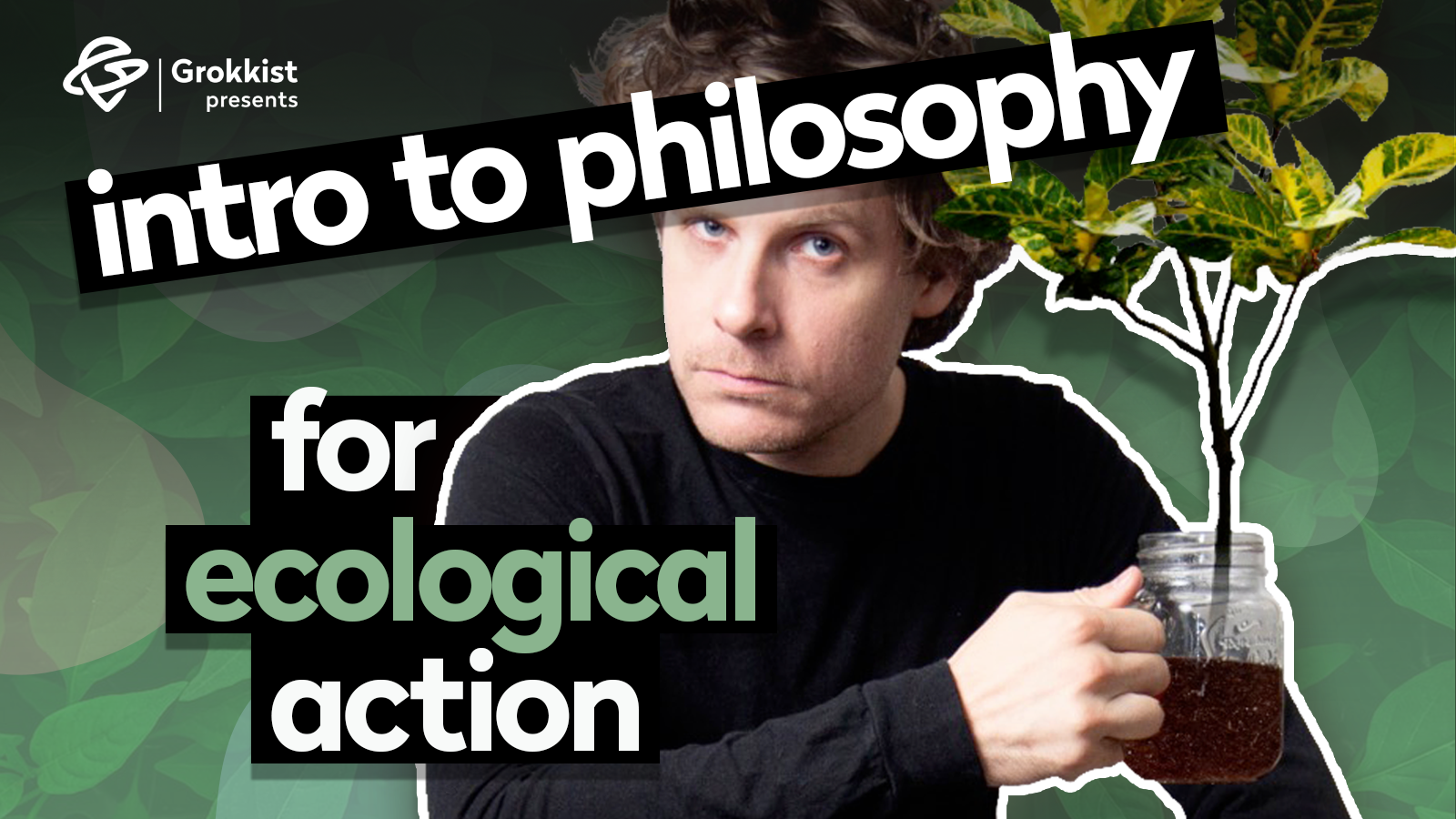
Ecosophy course Cohort 6 now open
🗓️ 12 Nov – 10 Dec | Tuesdays 7–9pm ET (view in your timezone)
Led by Nathan Dufour Oglesby
Suggested tuition USD$220* (20% discount for full members)
(*Can't afford it? Forget About the Price Tag)
Every mind houses a philosophy. Learn to express and live yours, and make your existence truly home.
Join us for the next instalment of our online ecosophy course, designed to guide you through these tumultuous times of environmental and societal change.
Everyone has a philosophy, whether they know it or not.
This course invites you to explore how your personal philosophy—your ecosophy—interacts with the larger ecological and social shifts, and discover how to articulate and act upon your values with clarity and purpose.
Together we’ll take a tour through philosophical ideas and thinkers both ancient and modern.
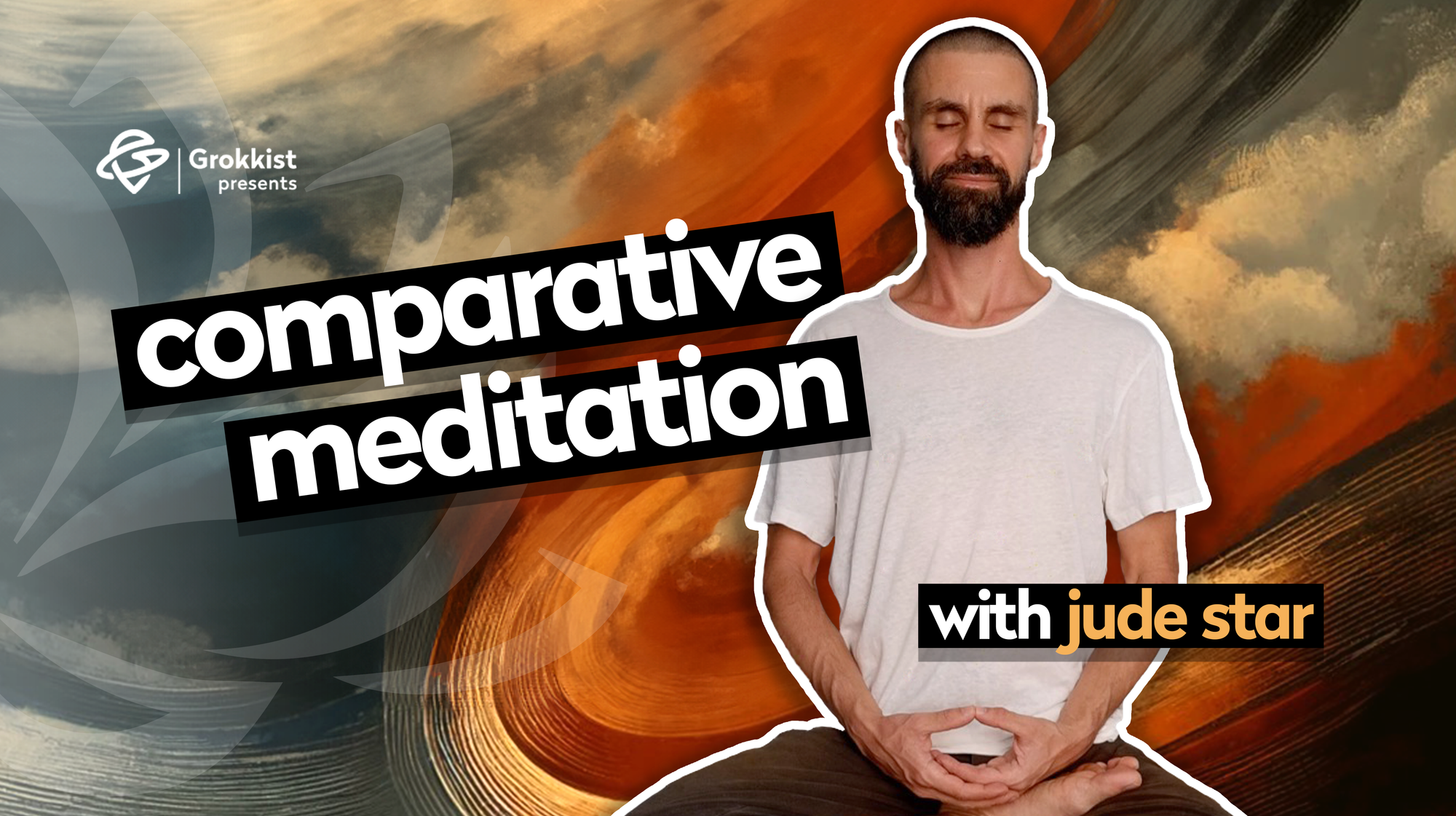
Comparative Mediation course Cohort 2 now open
🗓️ 18 Nov – 18 Dec | Mondays & Wednesdays 7–9pm ET (view in your timezone)
Led by Jude Star
Suggested tuition USD$220* (20% discount for full members)
(*Can't afford it? Forget About the Price Tag)
Explore the richness and depth of meditation in an experiential journey that weaves together the philosophical underpinnings and transformative practices of Shamatha, Vipassana, Tantra, and Non-Dual meditation.
This course will give you a crash course in a wide spectrum of meditative techniques through an integrative and comparative lens.
My goal is to help you understand the essence of each and in turn better grasp meditation and its dynamic yet complementary philosophies better as a whole.
While each category encompasses countless traditions and practices that could be explored for lifetimes, I've distilled the core themes and techniques to convey the essence of each.
🍬 Snackables
Assorted awesome links to nurture your curiosity
#1 - A quest for inner peace told through calming and original illustrations


Iulia Bochis is a Romanian illustrator whose art is inspired by the magic of life and the human spark of love and creativity. Her illustrated affirmations on socials are a calming salve for your scrolling habit and may be just what you need in your feed right now. She also has a beautiful printed book.
#2 - Soul-making productivity: a process manifesto
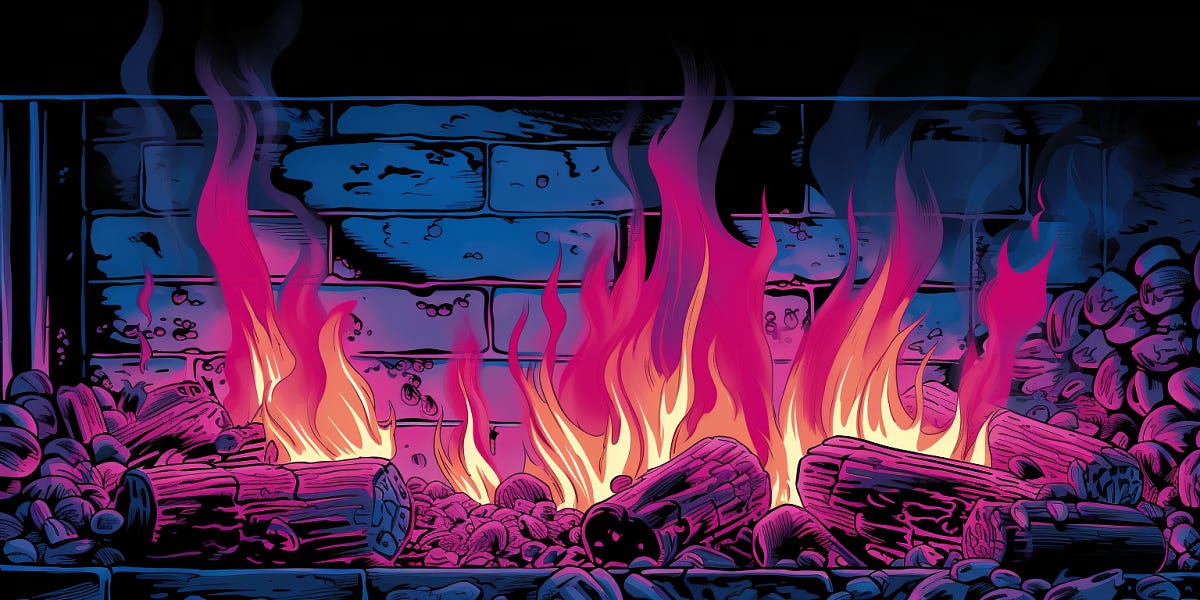
A perspective on productivity that shifts away from rigid, task-oriented approaches to a call to cultivate “desire paths” that honour both process and purpose, transforming productivity into a soulful, life-enriching practice. Rather than the typical “grit it out” or “wait for inspiration” mindsets, the author proposes a “soul-making” productivity that treats creativity as an apprenticeship with one’s inner fire. This involves nurturing ambition as a meaningful echo rather than mere output, aligning work with one’s authentic self, and finding “fuel” in curiosity, love, and awe rather than fear or self-criticism. By reframing productivity as an evolving partnership with inner desires rather than a mechanistic pursuit interested in mere execution, we can instead embrace a wholeness that allows all parts of ourselves to engage in the work.
#3 - Are we too impatient to be intelligent?

In a universe where everyone’s speeding towards somewhere they’re not sure they actually want to be, here's a fun and spiky article that challenges us to rethink our relationship with time and efficiency. Lots of examples, and sharp critique of a particular kind of bureaucratic stupidity we're all familiar with that is the result of what Ivan Illyich would call the 'schooled mind'.
What would’ve happened if you hadn’t given the brief for High Speed 2 to a load of engineering firms who immediately focused on speed, time, distance, capacity? What if you’d given the brief to Disney instead?
They would’ve said, “First of all, we’re going to rewrite the question. The right question for High Speed 2 is: How do we make the train journey between London and Manchester so enjoyable that people feel stupid going by car?”
Why does that question never get asked? Because it’s an open-ended question. And businesspeople, governments, and politicians aren’t looking to solve problems; they’re looking to win arguments.
This is a massive problem in decision-making. We try to close down the solution space of any problem in order to arrive at a single right answer that is difficult to argue with.
The people who want to win the argument are effectively prepared to ignore human truths to preserve the integrity of the artificial model.
People create these models because if you can reduce decision-making to an algorithm, or a formula, or a process, or a procedure, you avoid the risk of blame.
#4 - Can you taste a place?
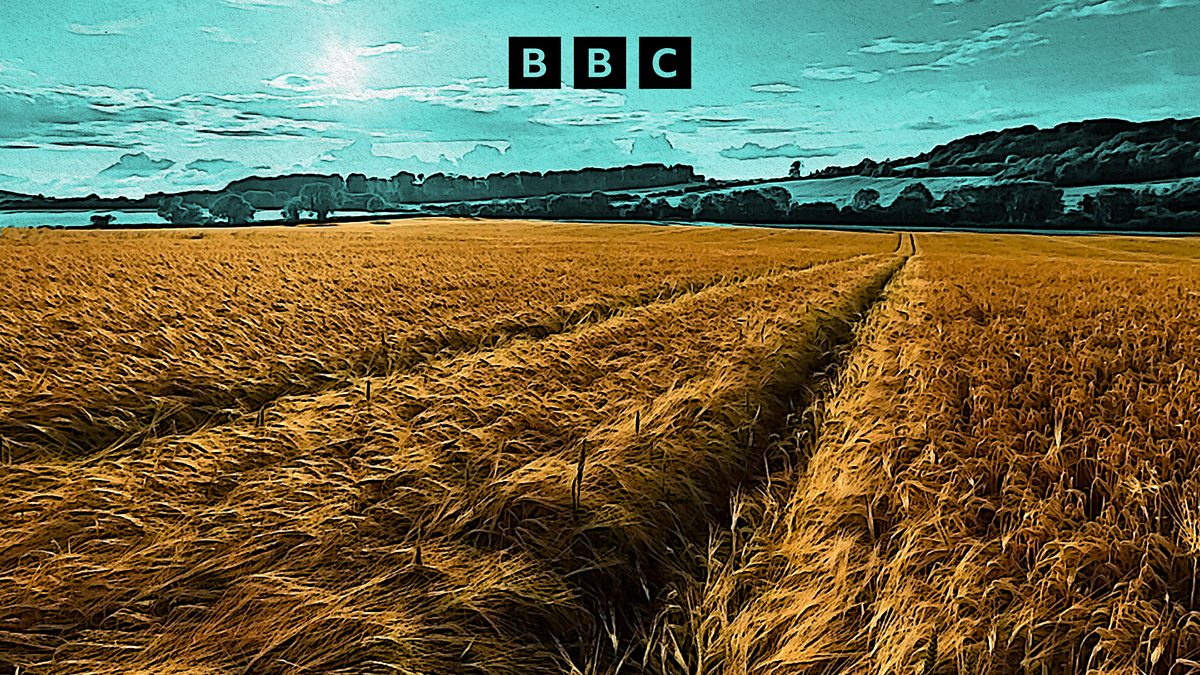
Terroir is the deep, unrepeatable alchemy between a place’s soil, climate, and culture that shapes what grows there into something unmistakably of that place. It's usually associated with the world of wine and coffee, but can apply to food too. The Food Chain podcast examines the business, science and cultural significance of food, and what it takes to put food on your plate—in this episode, the hosts look at the science behind terroir. They speak to a honey expert who is mapping the flavour variations across the world, a barley geneticist working with a high-end whisky brand, and a vertical farm in Liverpool, UK, to see if foods grown in a closed environment still taste just as good.
And if you're really into terroir, you might enjoy the Drops of God series on Apple TV+ which is a kind of wine-based international thriller, or try out the Terroir simulator game which is basically 'wine-making tycoon'.
#5 - The world is so loud – hug the light
And finally... in a world that is so loud, a little shrew searches for Hope as she makes her way across a bombed-out city. A 4-minute animated film written, directed, and scored by Kate Bush, made for a charity that supports children in war zones. Animation by Inkubus. If you're out there helplessly hoping and somewhat numb to your feelings, it might just make you sob uncontrollably (I wasn't expecting to but I did). That's what great art can do and it might be exactly what you need right now. As we say in Aotearoa New Zealand, kia kaha everyone.
A pair of parting thoughts...
“Believing in people, believing in care amid human conflict and messiness, is crucial to long-term political transformation.” – Annie Bares
“At the end of the game, the king and the pawn go back in the same box.” ― Anonymous
This newsletter was sent to 630+ curious and caring subscribers. Help us expand the grokkiverse by telling a friend. Here's a direct link to join the mailing list or you can share this edition directly with others too:
grokk.ist/newsletter/55/
Whenever you're ready, here are a couple of ways to deepen your grokkistry and be a contribution:
Unlock Your Grok
A hands-on, guided journey designed to help you transform your untapped potential into purposeful action.
Starting with a series of self-paced activities to spark your creativity and reconnect you with what truly lights you up, you’ll be supported by a personal 1:1 guide as you shape your unique wisdom into a meaningful project.
Enrol as a full member
Benefits include:
✅ Attend all our events with no cover charge (including special member-only events)
✅ Access to our full event recordings library
✅ A hefty 20% discount on all our courses
✅ Digital membership badge
✅ First-peek access and opportunities to pilot new stuff
Become our newest member today for USD$75/yr or USD$24/qtr.
That's it! Thanks for reading.
Hit reply and get in touch anytime – I love hearing from you.

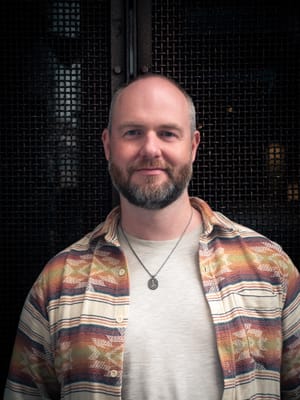
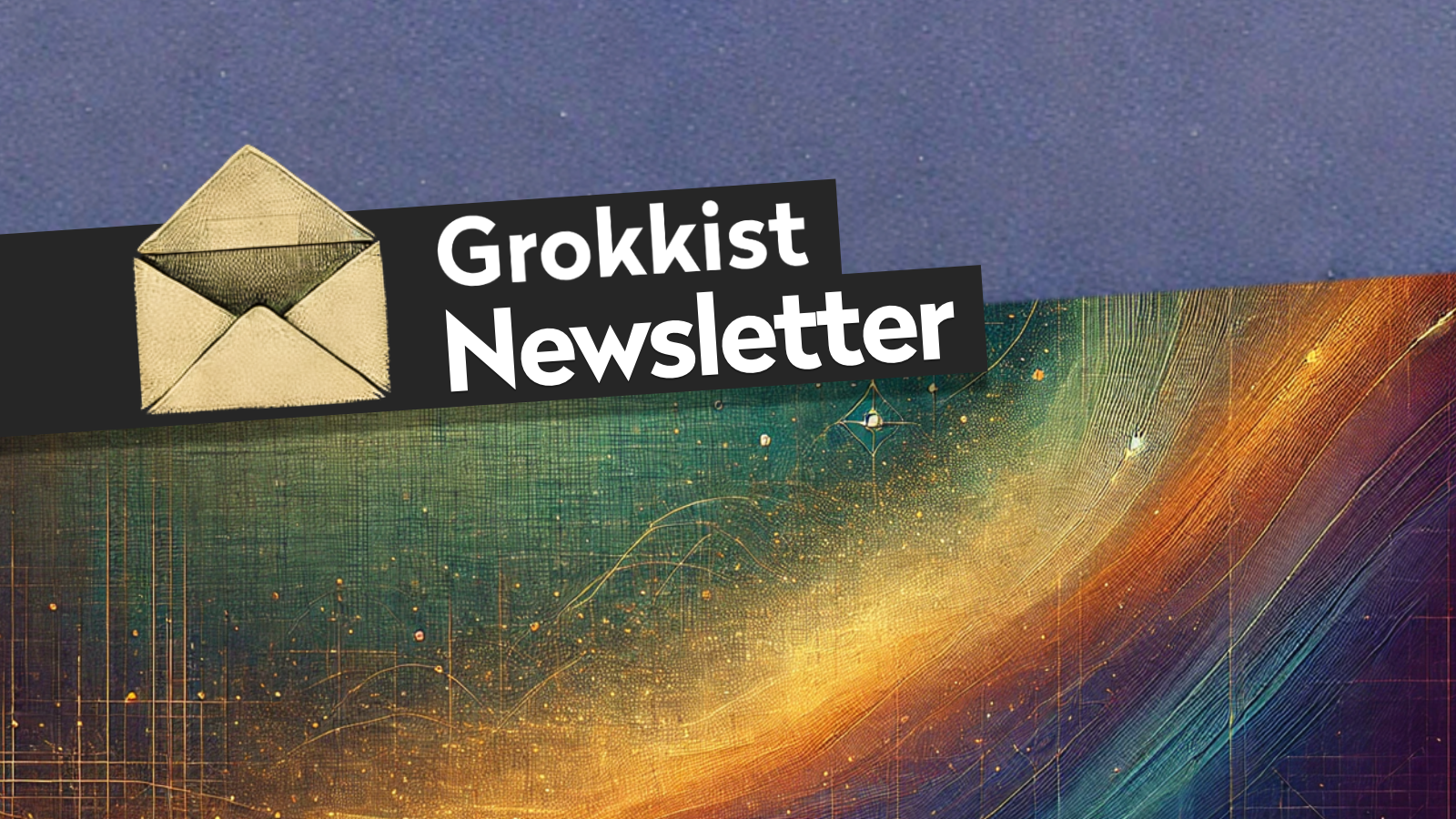






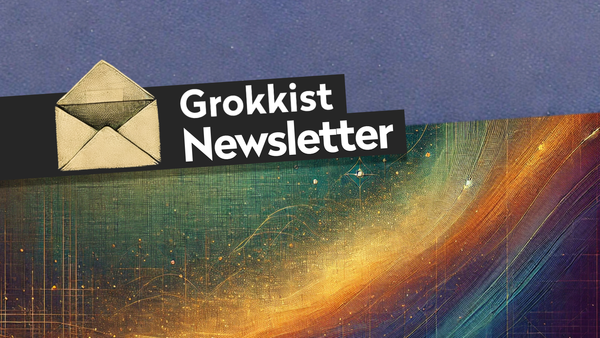
Member discussion